LAW 1: Case Study Analysis of Miranda Rights and Defendant Statements
VerifiedAdded on 2022/08/20
|6
|705
|16
Case Study
AI Summary
This case study, focusing on LAW 1, examines the critical issue of Miranda Rights and their implications during police interrogations. It analyzes whether statements made by a defendant in custody are admissible in court if the defendant was not informed of their right to remain silent and their right to legal counsel. The assignment delves into the Fourth, Fifth, and Sixth Amendments of the U.S. Constitution, highlighting how these amendments protect the rights of the accused. The case revolves around the scenario where Ernesto Miranda was not aware of his rights during interrogation. The study concludes that the statements made by Miranda are inadmissible because law enforcement failed to inform him of his rights. The assignment emphasizes the absolute nature of these rights, particularly the right to counsel and the right to remain silent, ensuring that any statements made in custody are valid and admissible as evidence in court only if the defendant is fully aware of their rights. The conclusion reinforces the necessity of informing suspects of their rights to ensure compliance with constitutional amendments.
1 out of 6
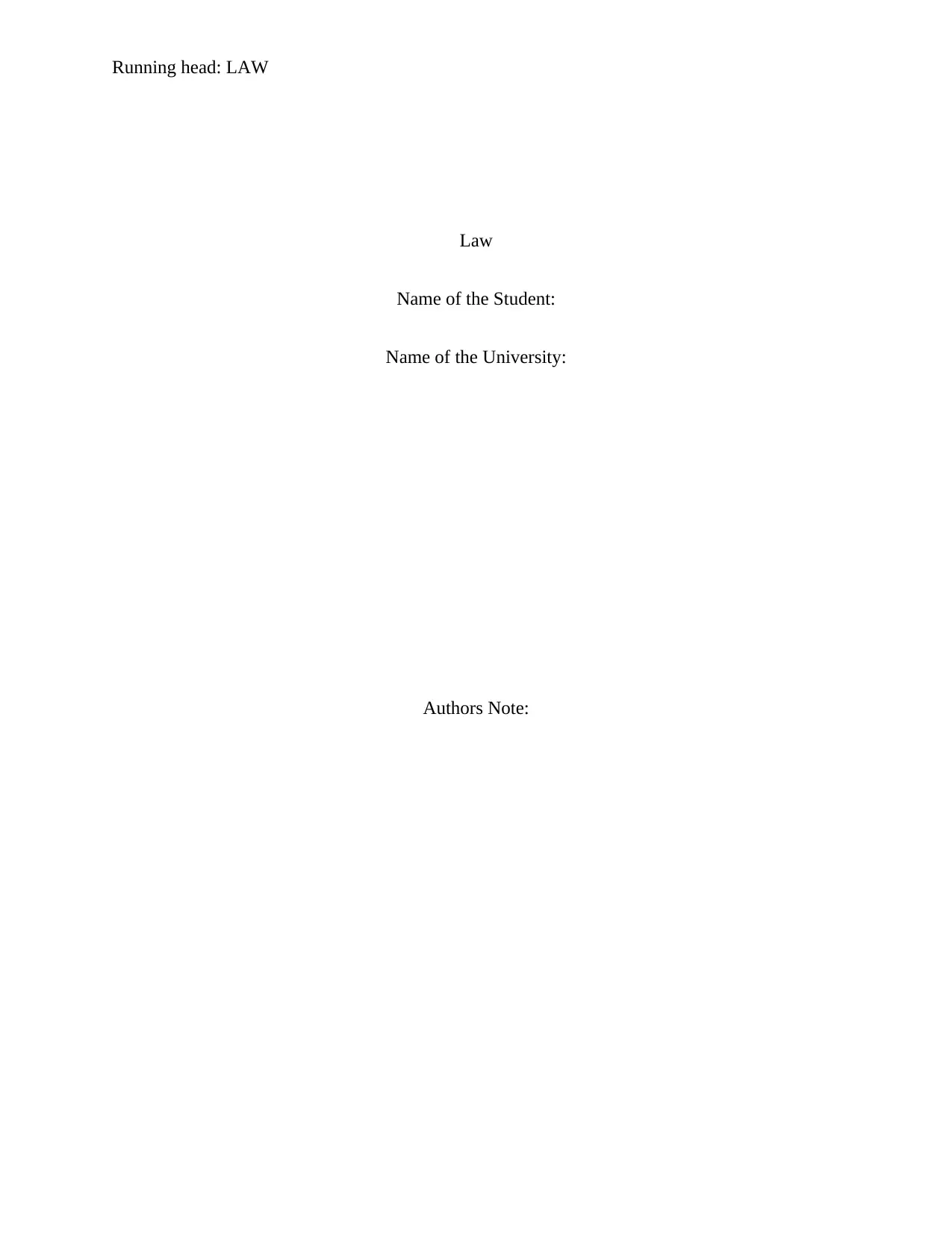
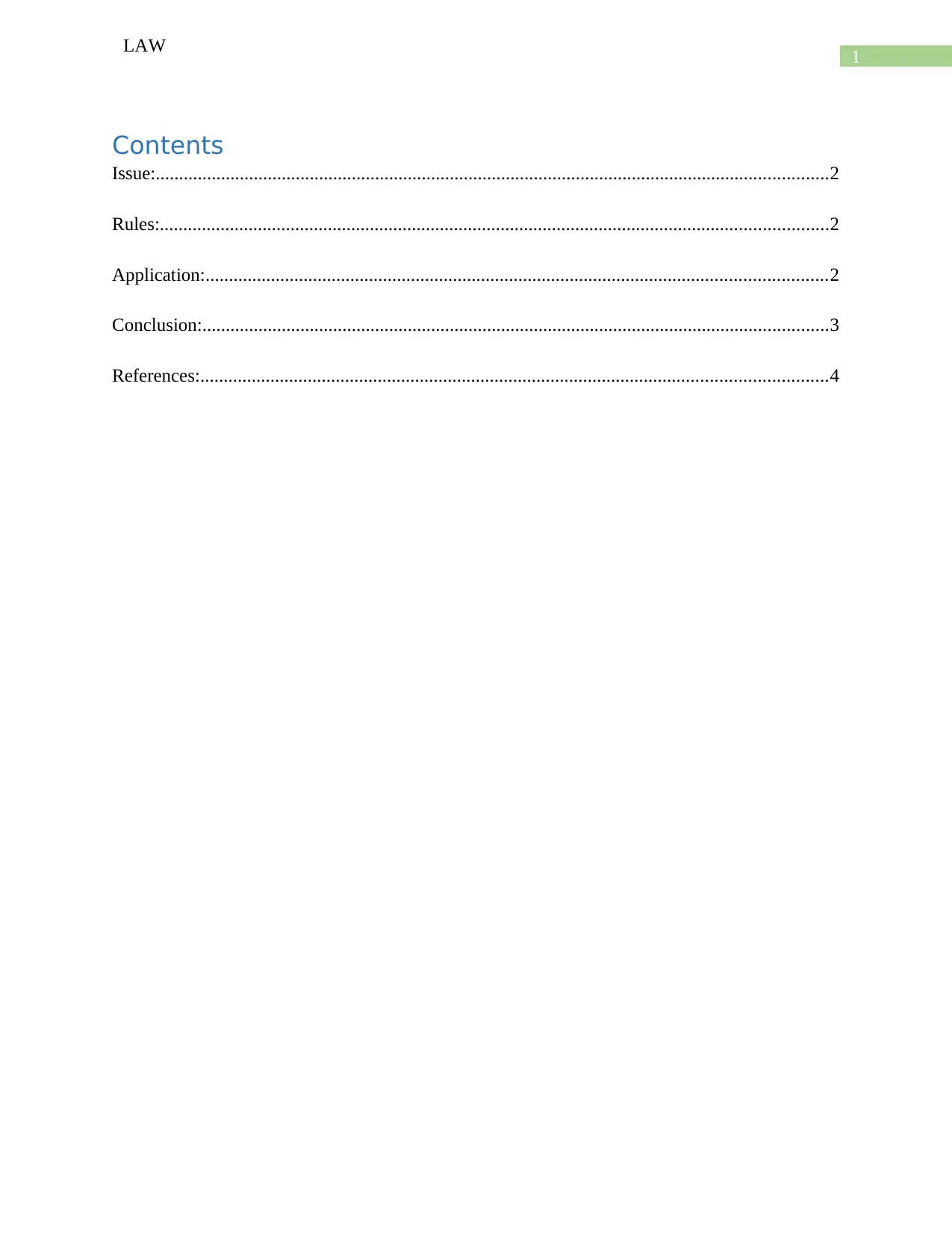
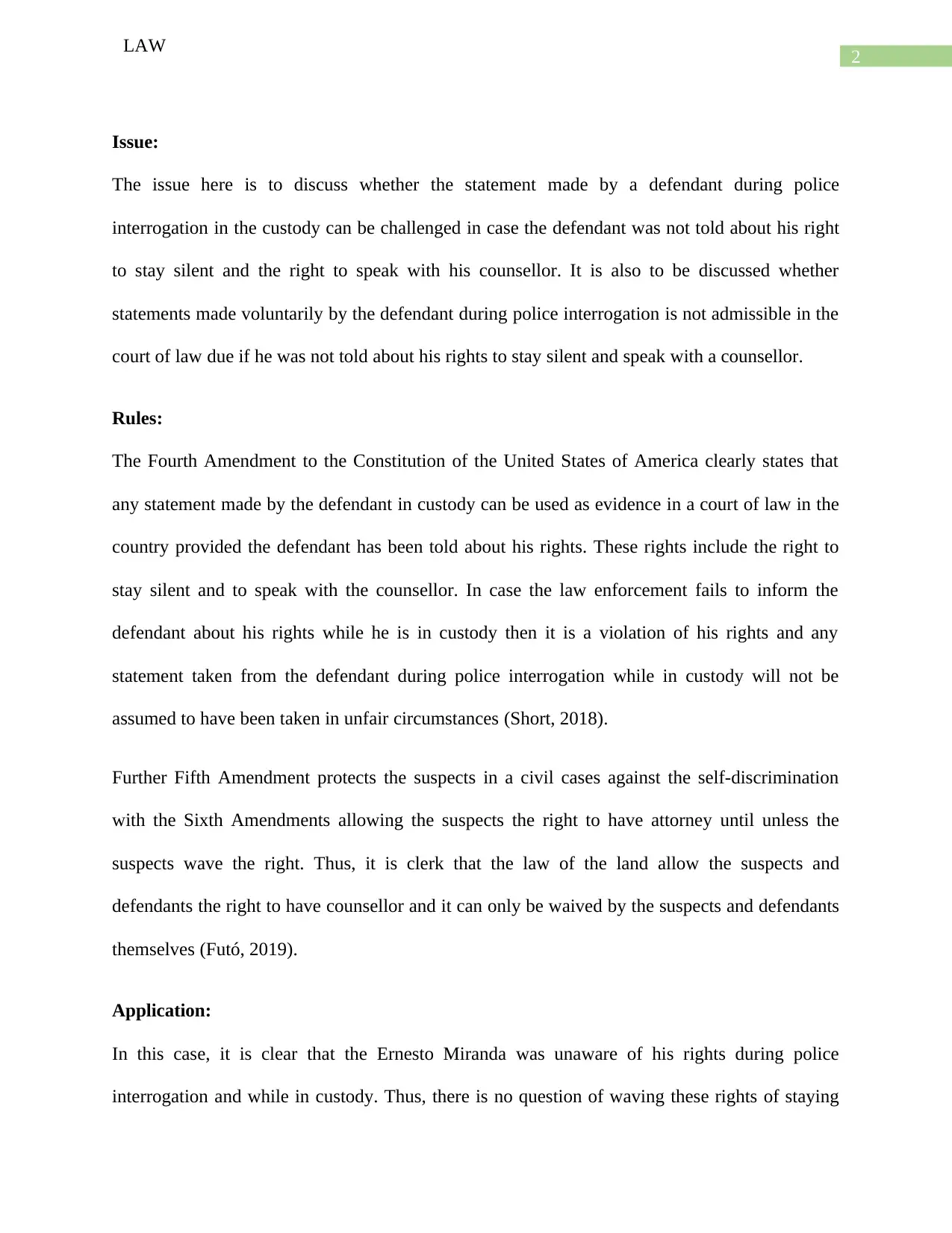

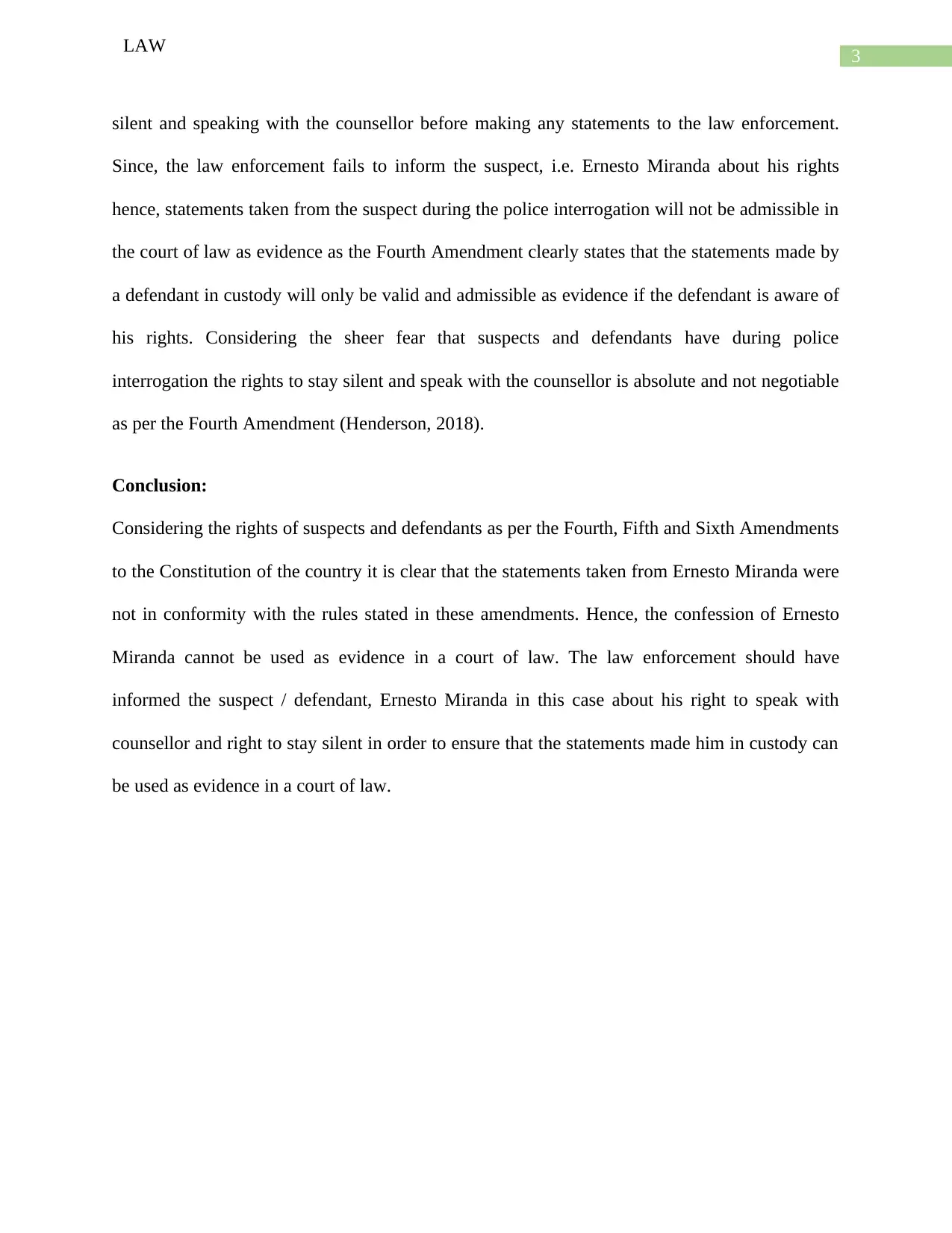
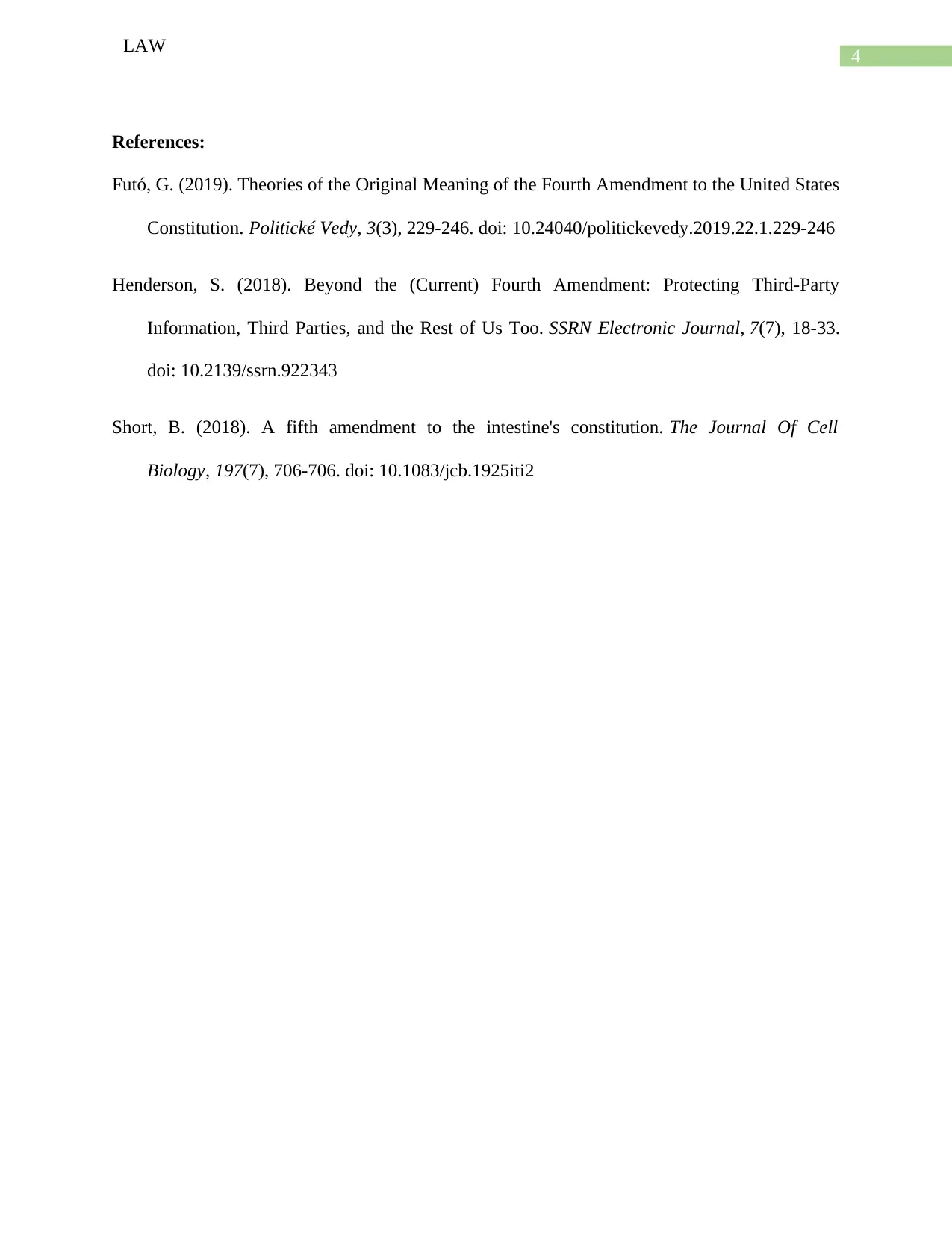







![[object Object]](/_next/static/media/star-bottom.7253800d.svg)